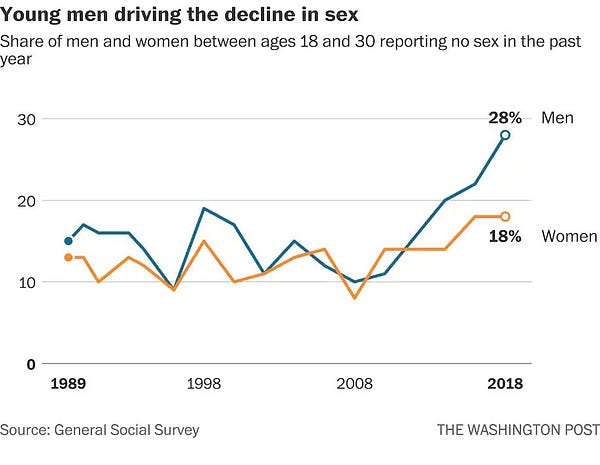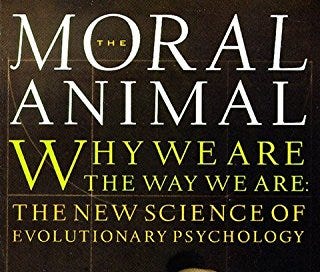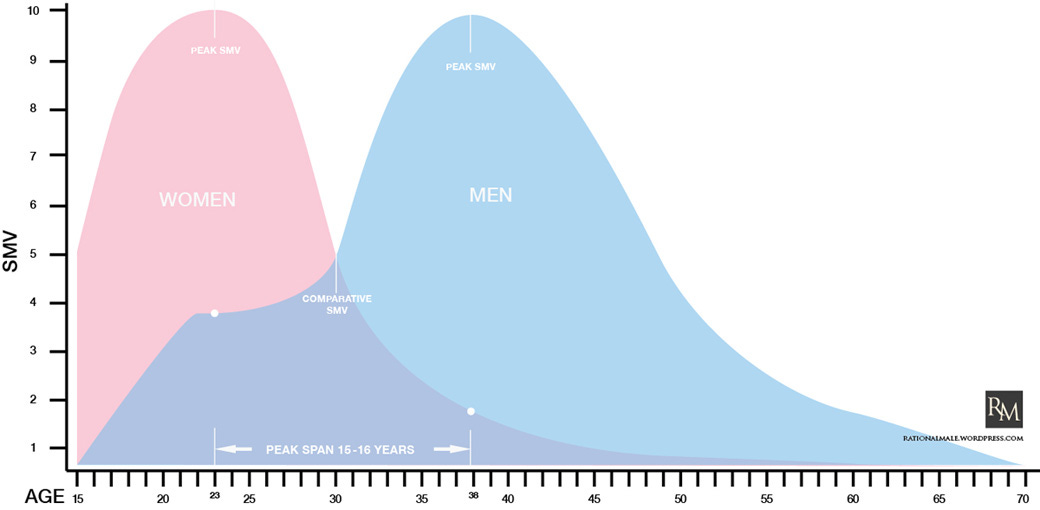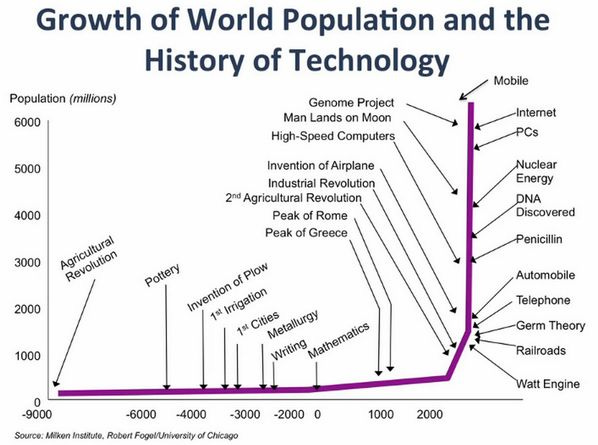Darwinian Dating Advice (Evolutionary Psychology Synthesized)
+ Why 20 percent of men get 80 percent of the matches on Tinder
You may be understandably skeptical of anything Darwin, given its misuse in dubious ideologies like social Darwinism. But I encourage you to approach evolutionary psychology with an open mind.
For some of you, it will feel like putting on a pair of glasses and seeing clearly for the first time— that’s how it was for me. For others, who are more intuitively intelligent, you might just get a little bit smarter. Enjoy.
Start
I went down a bit of an evolutionary psychology rabbit hole after listening to a podcast on Chris Williamson's Modern Wisdom and reading this book:
Evolutionary Psychology is a branch of science that views human behavior in terms of natural selection. It has particularly enlightening consequences for dating and mate selection. Those are the consequences we will focus on today.
If you want better relationships, you want to understand this stuff.
TL;DR
Females and males experience different mating circumstances as a result of natural selection (evolution).
This is because male sperm is more abundant for a longer time period than female eggs and females face asymmetric responsibility in pregnancy/parenthood.
Because of these dynamics, female sexual selection is more consequential than male sexual selection.
Further, there is a mismatch between the ancestral environment in which our brains evolved and the modern environment we now find ourselves in.
Thus, to say something is ‘natural’ does not imply it is ‘good.’ It implies it was well suited for gene proliferation in our ancestral environment.
Any arrangement between males and females requires some form of trade-off.
Monogomy is probably societally preferable to polygamy because polygamy inevitably leads to a Pareto distribution of male reproductive opportunities and thus an underclass of potentially violent sexless males.
At the end, I will suggest potential optimal long-term mating strategies for both males and females given this Darwinian framework.
To the action:
There are more sperm than eggs.
You might be thinking, "duh," but this fundamental supply and demand equilibrium means men and women face significantly different reproductive circumstances.
For example, men can technically reproduce hundreds of times a year, but women can only carry about one pregnancy per year.
Thus, female sexual selection becomes key because women must be highly selective to ensure a quality partner, considering the burden of producing and caring for a baby, of which they face greater responsibility.
So, how does female sexual selection work?
According to Robert Write, author of The Moral Animal, females select primarily for two things:
Good genes: demonstrated by physical attractiveness, intellect, compatibility, etc.
Future Parental investment: demonstrated by resources, social standing, competency, etc.
“It makes Darwinian sense, then for a woman to be selective about the man who is going to help her build each gene machine. She should size up an aspiring partner before letting him in on the investment, asking herself what he’ll bring to the project” (R. Wright)
So, from a purely natural selection point of view, the optimal strategy for a female might be to marry the loyal, caring, resource-rich family man while having an affair with Giga-Chad and duping the devoted husband into raising Chad's child— ouch.
A consequence of this is 1/4 of children in urban settings are allegedly raised by their non-biological father, according to blood tests. (R. Wright) A mother does not face this risk of genetic extinction.
The big risk for women
However, a female faces a heightened risk of abandonment because male discontent or his inability to settle down (and stay settled down) is the biggest challenge to long-term monogamy. (R. Wright)
This risk increases with age because a man typically remains fertile long into maturity while a woman does not. Hence the masculine urge to get up and start a new family with a younger woman around middle age.
At this point, you might be thinking,
Ok, but does a middle-aged man leaving his aging wife for a younger, more attractive woman really think, I want to become a father again?
Maybe not explicitly, but evolutionary psychology suggests reproduction is the underlying motivation driving that behavior.
How the genders view cheating
According to these dynamics, males tend to be hypersensitive to sexual infidelity because of false fatherhood risk.
But females tend to be hypersensitive to emotional cheating because of the risk of abandonment, which would have been a significant risk for her and her children in our ancestral environment.
Studies involving brain scans have indicated both dynamics. (R. Wright)
Of course, abandonment is less of a risk for the modern woman who need not rely on men for resources, but that doesn’t change natural selection’s unconscious effect on us. Also, we'll try to reconcile with modernity in a moment.
Ancestral vs Modern environment
The theory of natural selection says evolution optimized our minds for fitness in the environment in which those minds evolved. But our current environment is largely foreign to our ancestral environment.
Keep in mind evolution takes place over millions of years compared to the mere thousands it took for urbanization and industrialization to take hold.
Instead of living in tribes, we live in suburbs and cities. We are not evolved to experience so many potential partners, and in no way could natural selection have anticipated contraception, pornography, or Tinder and their consequences.
I believe we experience pain in the disconnect between our evolved animal ways and modern life— not only emotional pain but also physical pain. For example, instead of running and squatting, we sit in desk chairs and feel back pain.
But, we always face trade-offs. I am thankful to live in modernity with all of its amenities but acknowledging the trade-offs can help us feel more at peace and have better relationships.
You cannot escape trade-offs
Maybe you remember from this post:
Any arrangement between you and a romantic partner will require you to make trade-offs.
Short term relationships
Short-term relationships can be thrilling for both genders, but especially for males.
For example, male mice have been shown to prefer sex with novel sexual partners in an effect called the Coolidge effect:
“The Coolidge effect is the progressive decline in a male's propensity to mate with the same female combined with a heightened sexual interest in new females” (study)
That is not to say the only point of sexual relationships is ejaculation, but the Coolidge effect remains biologically embedded in male psychology whether we like it or not.
I believe this also partially explains males’ tendency to indulge in pornography, which produces endless sexual novelty, even at unhealthy and unproductive doses.
Side note: If you are a man who habitually consumes pornography. I encourage you to consider its effects on you. Also, I recommend this Ted Talk “ The Great Porn Experiment” to you.
Back to short-term relationships
The trade-offs can be significant. Besides the risk of emotional pain, unwanted pregnancy and STDs are also a risk.
Lastly, in my opinion, chasing pleasure simply for the sake of pleasure is generally unfulfilling, but that’s just my judgment.
“Sensual pleasures are the whip natural selection uses to control us, to keep us in the thrall of its warped values system.” (R. Wright)
I have less credibility to speak on the female experience with short-term relationships. Still, according to the author (also a male), women’s propensity to feel stronger emotional attachment from sex suggests they may get the worse deal.
But then again, if a woman finds fulfillment and pleasure in short-term relationships, she is obviously able to choose them just the same as a man. Again, none of this is meant as a moral judgment.
Beyond the individual, however, there are significant negative societal consequences of short-term polygamous relationships that we’ll revisit shortly.
Long term relationships
Long-term relationships are suitable for families, children, and as we will see later, society.
The author goes so far as to suggest the origin of love was not the modern romantic movement but rather natural selection’s method of persuading future parents to mutually care for their offspring. (R. Wright)
Also, a long-term relationship can help us remain accountable. The married father has more to lose from erratic behavior than the 45-year-old bachelor.
However, In Sex Before Dawn, the author argues that long-term monogomy is not humans’ evolved state but rather a byproduct of the agricultural revolution when property and thus security over heredity became more critical.
There are conflicting views about the origins of monogomy, but it is undeniable that monogomy has become a near cultural universal across developed human societies. Why?
Polygamy vs monogamy — societal effects
The societal problem with polygamy is it routinely creates a Pareto distribution of reproductive opportunities for males. (R. Wright)
To recap, the Pareto Principle (also commonly known as the 80/20 rule) states roughly 80% of consequences come from 20% of causes, or in this case 20 percent of the males’ mate with 80 percent of the women.
We can witness this play out on Tinder which also operates under a Pareto Principle. A tiny portion of the males on Tinder receives the vast majority of matches and dates. (Essay)
If this sounds unlikely, think about the highly selective nature of females.
We can easily appreciate how many women would rather have half of a giga-Chad than all of a job-less guy on his parent’s couch while most men are willing to mate with most women. (R. Wright)
The dire consequence of a Pareto distribution of male reproduction is a large swath of sexless men at the bottom of society. These men are most likely to jeopardize the stability of society. (R. Write)
In that way, enforced monogamy (an icky phrase that would be better worded as culturally encouraged monogamy) has a stabilizing societal effect:
“This is perhaps the best argument for monogamous marriage, with its egalitarian effects on men: inequality among males is more socially destructive— in ways that harm women and men—than inequality among women. A polygynous nation, in which large numbers of low-income men remain mateless, is not the kind of country many of us would want to live in.” (R. Wright)
FYI


Makes me think of this quote from Marcus Aurelius:
“What’s not good for the hive is not good for the bee.”
Optimal Mating Strategies (long-term monogomy)
Now that we have demonstrated that monogamy is likely societally beneficial, I will present what I believe to be optimal mating strategies for finding a long-term monogamous partner to raise a family with.
Of course, not everyone has to enter such an arrangement, but most people probably envision a life with children and a functioning monogamous relationship would help.
This is now my opinion.
Optimal Female Strategy
I’ll start with females and be brief because I have less expertise.
If I were a female looking to start a family, I would date prolifically yet reserve sex only for viable long-term partners because a female’s sexual selectivity gives her immense leverage and bargaining power over generally less selective men.
This strategy is partially thwarted by socially liberal views on sex which dramatically reduce the cost of sex for males. Scarcity indicates value, and if a man can easily obtain sex elsewhere, the bargaining power for women everywhere diminishes.
That is not a moral judgment saying women must adhere to old Victorian ethics, but perhaps there is an ounce of folk wisdom hidden inside those at times stifling morals.
On the other hand, maybe you are a female reading this and do not want a family, and instead find fulfillment in the freedom to explore short-term relationships or your career/hobbies. That’s fine, it’s your decision.
But just to play devil’s advocate, here is what Jordan Peterson might say to that:
Optimal Male Strategy
A male can bide his time to start a family due to his longer fertility window.
He can use this extra time to become a higher value mate, which will help him navigate a landscape of selective females.
So a male who wants to start a family with the fittest possible mate would do well to spend his twenties largely refraining from mating but instead improving himself.
This is a strong strategy for two reasons:
1. Transmutation of sexual energy
All this means is redirecting your sexual desires away from mating into other productive pursuits like learning, networking, and generating wealth.
Successful men have advocated for this for decades, including Mahommed Ali, Nikola Tesla, and Napoleon Hill, author of Think and Grow Rich.
For transmutation of sexual energy to be effective, it is essential to refrain from chronic porn consumption.
I am not advocating for abstinence; that would be extreme, but rather careful discrimination of productive and unproductive pursuits.
I will link to some reading on the topic below.
2. He will become a more valuable mate
After a decade of learning, earning, and growing, a male will become a more valuable mate than he was at age 20 when he had little to offer women.
This, of course, benefits both men and women.
How can men (and women) improve themselves?
One of the most helpful frameworks for improving yourself is talent stacking from Scott Adams. You can read about it here:
Essentially, you want to learn valuable skills, like languages, coding, and public speaking, because talents explode your options and capabilities.
This is not limited to skills that help your career. Skills like cooking, dancing, and musical instruments will also give your more options.
Building on that, I have found just a few tricks up your sleeves like card tricks, juggling, or rollerskating make courtship more exciting.
Also, he would be wise to maximize physical health and testosterone levels with weight lifting and other healthy habits.
Men have no option other than to improve themselves
The reason men need to improve themselves is that female selectivity leaves males at the bottom potentially mateless.
Some argue, including Jordan Peterson, that this intense female selective pressure has been responsible for our rapid evolution as a species.
“Necessity is the Mother of all invention.” -Plato
Now, I am not saying females should ignore self-improvement, but she does not face the same level of risk of remaining mateless if she does not improve.
Don’t get complacent; get better
In that way, the standard narrative of, “Accept yourself” is potentially nonsense for young males because it goes against natural selection.
Instead, young men might be better served by hearing, “Improve yourself.”
That might be why Jordan Peterson’s message to start taking stoic responsibility for your outcomes has resonated with so many young men, myself included.
What about love and fun?
The most common rebuttal people have had to these ideas is, “Sure, sounds kinda logical but what about love? How can you be so calculated with something like love?”
I agree, love is important, but we are talking about long-term relationships. A rosy view of romantic ideals muddles what is necessary for a relationship to function.
Instead, if we embrace reality, however uncomfortable, we can produce better outcomes for ourselves and our partners.
Summary
Our environment has changed but we have not. Natural selection still plays a key role in determining our emotions and mating habits. Understanding it's role in shaping our desires can help us have healthier relationships.
Lastly, it’s your choice if you decide to start a family or remain a bachelor(ette), but there are always trade-offs.
Thank you Adrian and Alice in the Hague for inspiring and helping me write this post:)
Do you notice any blind spots in the research?
Do you agree or disagree with any of these findings?
Recommended Reading
On the Origin of Species
The Moral Animal
Sex at Dawn
Think and Grow Rich (Chapter 11: Transmutation of Sex)
The Way of the Superior Man










